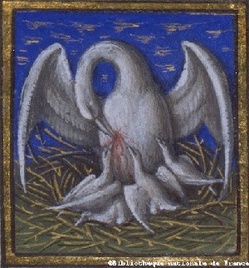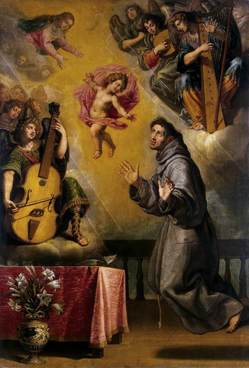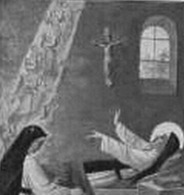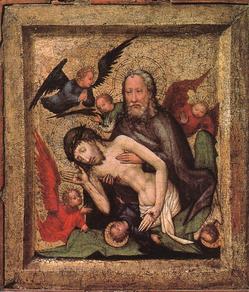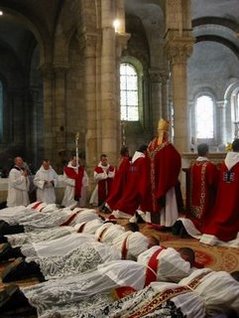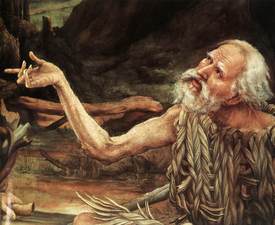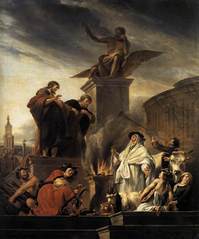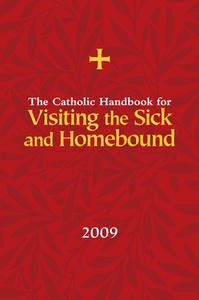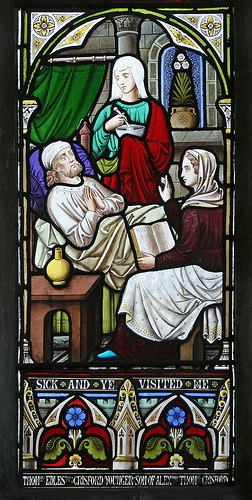That today is Thursday, the day of the Eucharist and the priesthood, I thought I would republish most of the recent letter of Archbishop Piacenza (Secretary
for the Congregation for the Clergy) who writes to the world’s priests in view of the Year of the Priest. Reading the letter you see that he is right when he says that the holiness of
priests is not for themselves, it is a sacrificial holiness, an offering with
Christ, for the benefit of the entire Church. He writes to the priests:
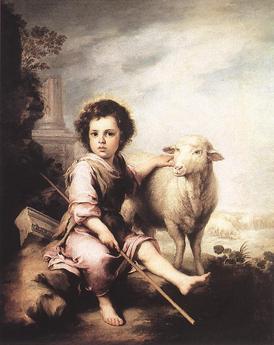
Each day we are called
to conversion, but we are called to it in a very particular way during this
year, in union with all those who have received the gift of priestly
ordination. Conversion to what? It is conversion to be ever more authentically
that which we already are, conversion to our ecclesial identity of which our
ministry is a necessary consequence, so that a renewed and joyous awareness of
our “being” will determine our “acting”, or rather will
create the space allowing Christ the Good Shepherd to live in us and to act
through us.
Our spirituality must be nothing other than the spirituality
of Christ himself, the one and only Supreme High Priest of the New Testament.
In this year, which the Holy Father has providentially
announced, we will seek together to concentrate on the identity of Christ the
Son of God, in communion with the Father and the Holy Spirit, who became man in
the virginal womb of Mary, and on his mission to reveal the Father and His
wondrous plan of salvation. This mission of Christ carries with it the building
up of the Church: behold the Good Shepherd (Cf. Jn. 19:1-21) who gives his life
for the Church (Cf. Eph. 5: 25).
Yes, conversion every day of our lives so that Christ’s
manner of life may be the manner of life made ever more manifest in each one of
us.
We must exist for others, we must undertake to live with the
People in a union of holy and divine love (which clearly presupposes the
richness of holy celibacy), which obliges us to live in authentic solidarity
with those who suffer and who live in a great many types of poverty.
We must be labourers for the building up of the one Church
of Christ, for which we must live purposefully and faithfully the communion of
love with the Pope, with the Bishops, with our brother priests and with the
Faithful. We must live this communion with the unbroken pilgrimage of the
Church within the very sinews of the Mystical Body.
We should be able to run spiritually in this Year with a
“wide open heart” so as to inwardly conform to our vocation the
better to say, in truth “it is no longer I who live but Christ who lives
in me” (Gal. 2:20).
The holiness of priests redounds to the benefit of the
entire ecclesial Body. Thus it would be most fitting for all of us, be that the
ordained Faithful, seminarians, the male and female religious, and the lay
Faithful, to find ourselves all together at the Vatican Basilica for the
Vespers presided over by the Holy Father, which will be celebrated after
welcoming the reliquary of the heart of that most outstanding priestly model
who is St. John Mary Vianney.
Those who are unable to be in City of Rome are encouraged to
join themselves spiritually to the occasion.
+Mauro Piacenza
Titular Archbishop of Vittoriana Segretario
